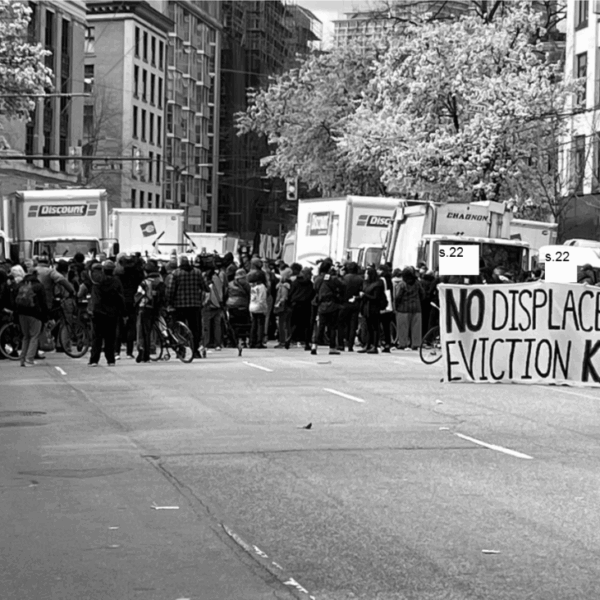Art & Culture
This week, Downtown Eastside residents rallied at the abandoned Pantages Theatre on the 100 block of East Hastings, and painted its facade with slogans...
Hi, what are you looking for?


On the evening of April 5, 2023, as the first day of the Hastings decampment operation came to a close, Vancouver Mayor Ken...
This week, Downtown Eastside residents rallied at the abandoned Pantages Theatre on the 100 block of East Hastings, and painted its facade with slogans...
Last week Sean Antrim outlined how the past three years of a Vision government has been anything but progressive. For reasons of principle and...
It is two months since The Mainlander hosted a story on new Chinese housing policy that is exporting real estate investment pressures — especially...
By deciding to arrest the group of eight, Mayor Robertson made a clear choice, sending a clear message. Robertson is no longer the "End...
COPE's Executive announced today that it has negotiated a coalition deal whereby COPE will limit the number of council members it will run in...
Five homeless shelters are scheduled for closure in Vancouver this week because the provincial government refuses to regularize funding. Each of the 5 shelters...
The anti-protest bylaw passed by Mayor Robertson this week will hurt the homeless, Darcie Bennett of PIVOT Legal Society told The Mainlander. The bylaw...
The Olympic Village represents a "fiasco," but more and more it's turning into a fiasco of journalism. Prominent columnists have spent the last week...
The results from the March 20th hearing were displayed last night at a City-hosted open house. The Heritage Hall on Main Street was full...
B.C. Housing has declared that by the end of the month at least five shelters will be closed throughout Vancouver.* According to the province,...